There are few aesthetic and literary pleasures that compare to browsing in a second-hand bookshop. While it is more or less a given what books will be found in a new bookshop, one of the chief joys of going second hand is that it’s entirely unpredictable what you’ll emerge with. Sometimes, the browser will leave empty-handed, but more often than not – and I speak from personal experience here – ‘a quick look’ will turn into the purchase of a dozen interesting volumes and a solid half an hour’s perusal.
Yet the industry, once so much part of every town and city, has been existentially threatened by the growth of the charity bookshop trade over the past two decades, not least the Oxfam bookshops. I would not seek to denigrate either these excellent shops – the Oxfam on St Giles in Oxford remains one of my favourite places to browse – or the intention behind them, but the advantages they face (free stock, volunteer staff, tax breaks from the government) means that many second-hand bookshop proprietors, their reluctant rivals, have either shut their bricks and mortar shops, or retired altogether.
And the most recent change in the industry might have led to further ructions, too. The Society of Authors recently announced that, for the first time, authors could expect to receive royalties from second-hand sales of their books, thanks to the newly launched AuthorSHARE programme. Initially, the programme has started relatively small. The fund will be worth £200,000 for the scheme’s first year, with royalties capped at £1000 per individual author, but there is a hope that, if successful, it will grow in future years.
The bestselling writer Amanda Craig, who has championed such a scheme for years, is especially pleased at its implementation. As she told me, ‘The idea arose after I’d had an evening with a BritArt publisher who has made a fortune from his books reproducing works by Damien Hirst and others. They count as works of art, and he told me about the resale that both artist and publisher get on every copy. I raised this first as a Board Member when on the Society of Authors about a decade ago, to zero interest, and then in a letter to The Author. It seems extraordinary that the law applies to visual art, including reproduction, but not literary.’
Yet there are logistical challenges. For a start, it seems an onerous responsibility for volunteers in charity shops to log every donated book and its sale, and in practice it seems unlikely to happen. And much the same goes for booksellers in their own shops, who may well resent hours of labour that do not benefit them in any direct fashion. While it may be relatively easy to log second-hand sales via Amazon or AbeBooks, the chances of old-fashioned bricks and mortar shops doing so will remain limited. However, Craig remains positive. She says ‘I think it might benefit more people that you think. I’ve no idea how many books are sold second hand via Amazon UK, but I bet it is millions.’ And in an industry where many writers are struggling to get by, every piece of hitherto unearned money is a bonus. As Craig remarks, ‘Even £100 helps!’
Outstanding second-hand bookshops in the United Kingdom:
Barter Books, Alnwick
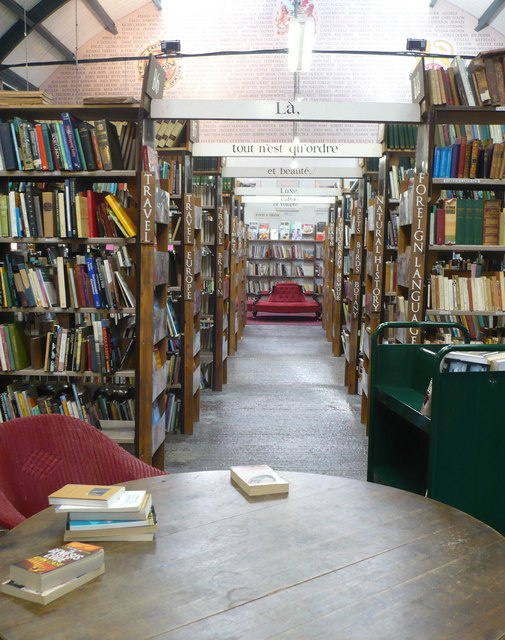
The bookshop that unearthed the ‘Keep Calm And Carry On’ posters from WWII is often regarded as the country’s pre-eminent place to buy second-hand books, and a destination in its own right. Situated in Alnwick station, complete with many of the original furnishings (gas fires, comfortable armchairs and the like), it has a stock of tens of thousands of titles, ranging from 50p paperbacks to valuable antiquarian books costing five-figure sums. One clever way in which the owners have ensured the shop’s longevity is by living up to its name – most books are not purchased for cash, but for credit, hence the ‘barter’ aspect. In homage to the building’s former use as a train station, there is a model railway with a train that makes its way around the tops of the shelves.
Blackwells Rare Books, Oxford
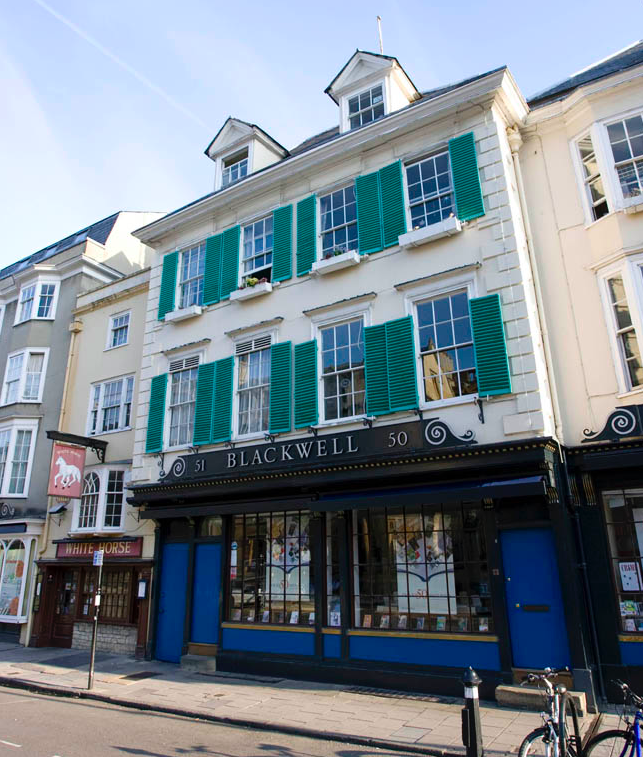
Blackwells on Broad Street in Oxford is probably the greatest and most famous bookshop in Britain, and so it is little surprise that its second-floor rare books section is similarly excellent. Its carefully chosen stock, bought by experts with a genuine passion for literature and history, ranges from the affordable to the aspirational, and it is particularly strong in modern first editions and private press titles. Many of the books on offer are signed or inscribed, making this a wonderful place to visit for a one-of-a-kind collector’s item.
The Bookshop, Wigtown
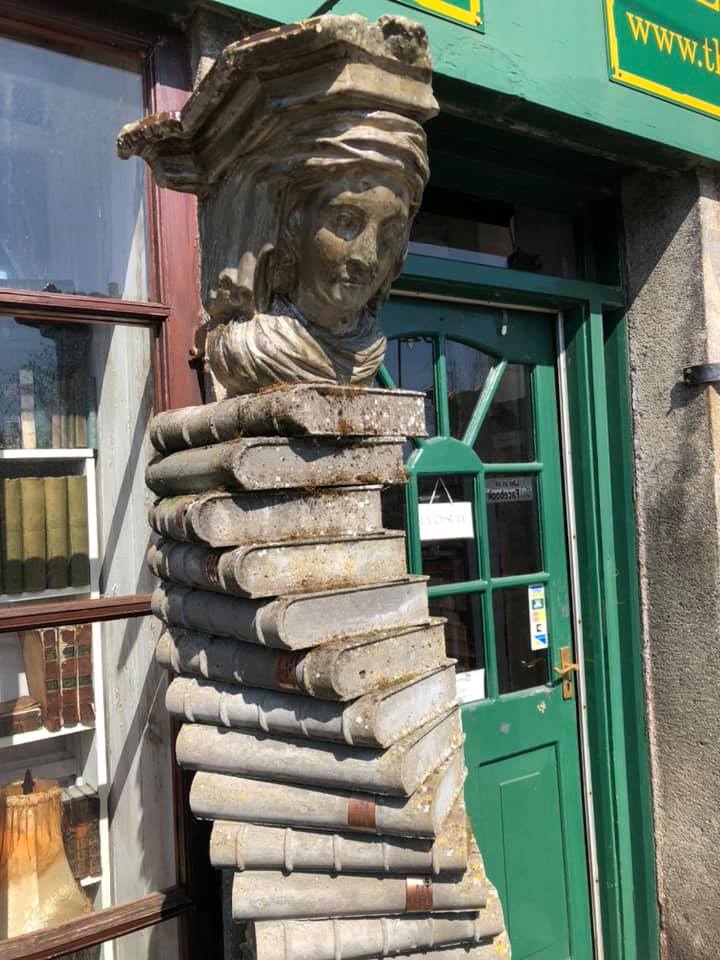
There aren’t many second-hand bookshops that have a bestselling author as their proprietor, but Shaun Bythell, owner of the largest establishment in Scotland’s ‘book town’ Wigtown, has published two excellent collections of his diaries about his work as the often grumpy and understandably misanthropic proprietor of his shop. Beset by eccentric and demanding customers and ungovernable staff, to say nothing of days in which nobody visits his shop, Bythell nevertheless conveys both the poetry and romance of his profession. It’s little wonder that his institution is on many book-lovers’ trails of Britain, nor that they compete to run an Airbnb bookshop in the town, but The Bookshop itself remains primus inter pares.
Bow Windows Bookshop, Lewes
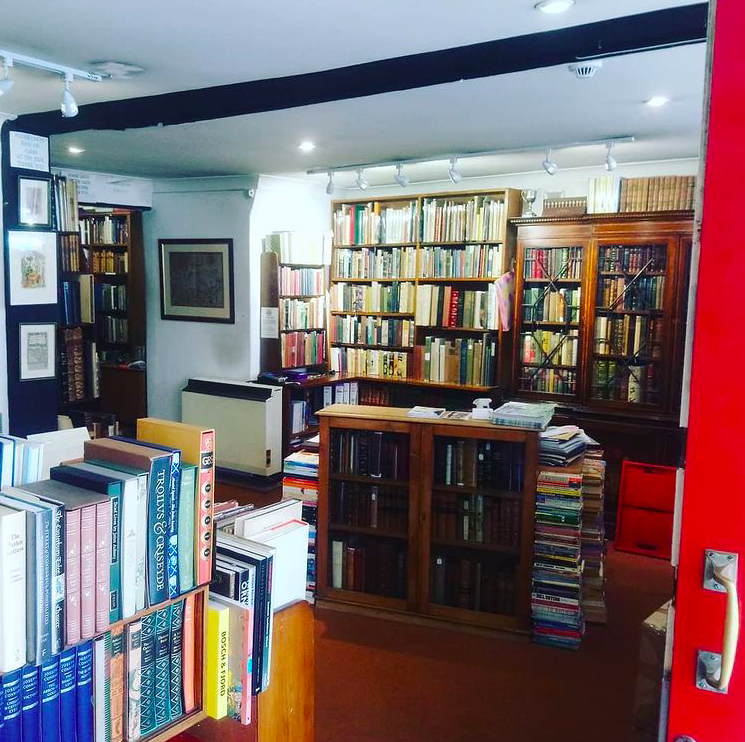
Lewes is a town rich in literary and historic associations, from Tom Paine to the Bloomsbury Group, and so you would expect its most distinguished second-hand bookshop to be a similar treasure trove of excellence. You would not be disappointed. Run by two friendly booksellers, the stock is of a consistently high and interesting level, ranging from everything from affordable paperbacks to incredibly scarce first editions and illustrated books. As you might expect, a particular speciality of the shop is in Charleston and Woolf-related literature; at the time of writing, one highlight for sale is a first edition of Virginia’s 1919 novel Night and Day, once owned by Sydney Waterlow, who unsuccessfully proposed to her in 1910, and later inspired a character in Orlando. It’s a comparative snip at £750.
Chapel Books, Westleton
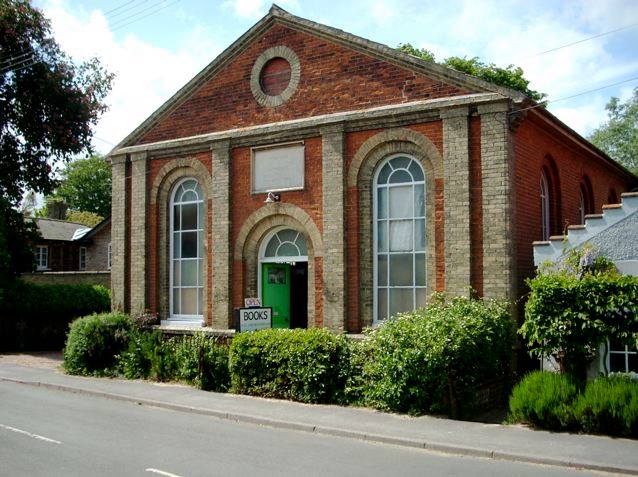
I spent some of my formative years in Suffolk and have very fond memories of Bob Jackson’s excellent bookshop, located in a former Methodist chapel in the beautiful village of Westleton, roughly halfway between Aldeburgh and Southwold. Jackson used to run his establishment in what he calls ‘organic disarray’, and could be summoned from a distant corner by bashing on a tin can with a stick. Today, it is more recognisably a bookshop, with an excellent and very fairly priced stock of a range of books over its premises. It may have been ‘rationalised’, but there is still a likeably eccentric spirit that means that many bibliophiles will make a special trip to this wonderful place.
The Haunted Bookshop, Cambridge
It may be home to the country’s (second) best university, but second-hand bookshops are something of a vanishing breed in Cambridge. Thank God, then, for the excellent Haunted Bookshop, situated just off the ever-iconic King’s Parade. It specialises in children’s books but also sells a lot of East Anglian and general fiction titles, and prides itself on not being remotely stuffy or elitist. If you are of an inclination to look for a first edition of a book that you loved growing up as a present for your own children, or just for yourself, this is very much the place to visit.
Peter Harrington, London
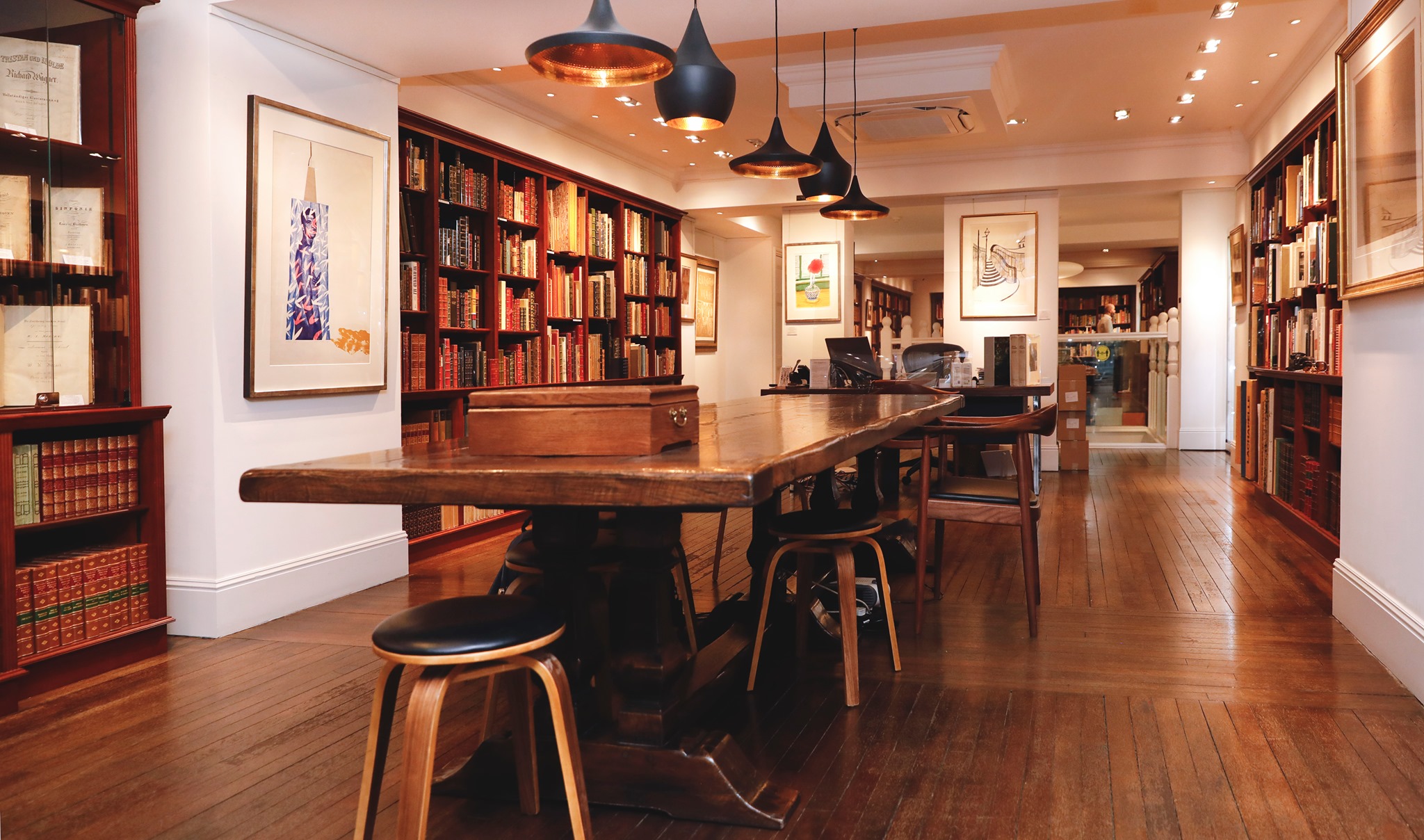
London is not a great city for second-hand bookshops, with high rents meaning that few general establishments can survive for long. But if you want something really high-class, visit one of Peter Harrington’s shops in Mayfair or Kensington. There, you will find impossibly rare first editions in immaculate condition, often signed. A glance at their current stock reveals Ian Fleming’s original typescript of Diamonds are Forever, a signed copy of Dickens’ Bleak House and George Orwell’s correspondence about the publication of Animal Farm. A visit here is as rewarding as any museum or library, with the added bonus that the deep-pocketed can actually purchase some of the rare and unique items available for sale.
Richard Booth’s, Hay on Wye
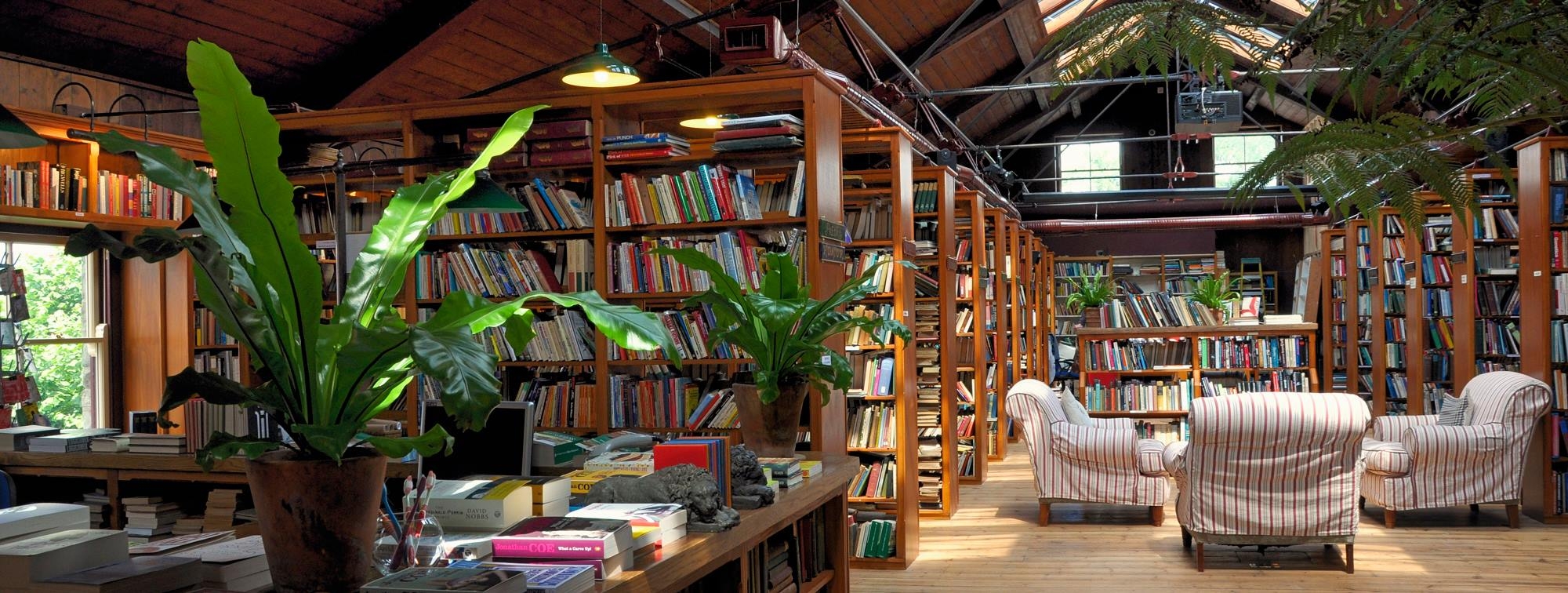
This cavernous shop with its multiple floors and reading spaces is more akin to a library than a second hand book shop. The amount of space means it can divide its stock into niche sections of interest, making it all the more likely you’ll be able to stumble across a volume you’ll love. It’s a must for anyone visiting Britain’s most famous book town. Top it off with brunch in the award-winning cafe or a film in the Booth’s cinema.


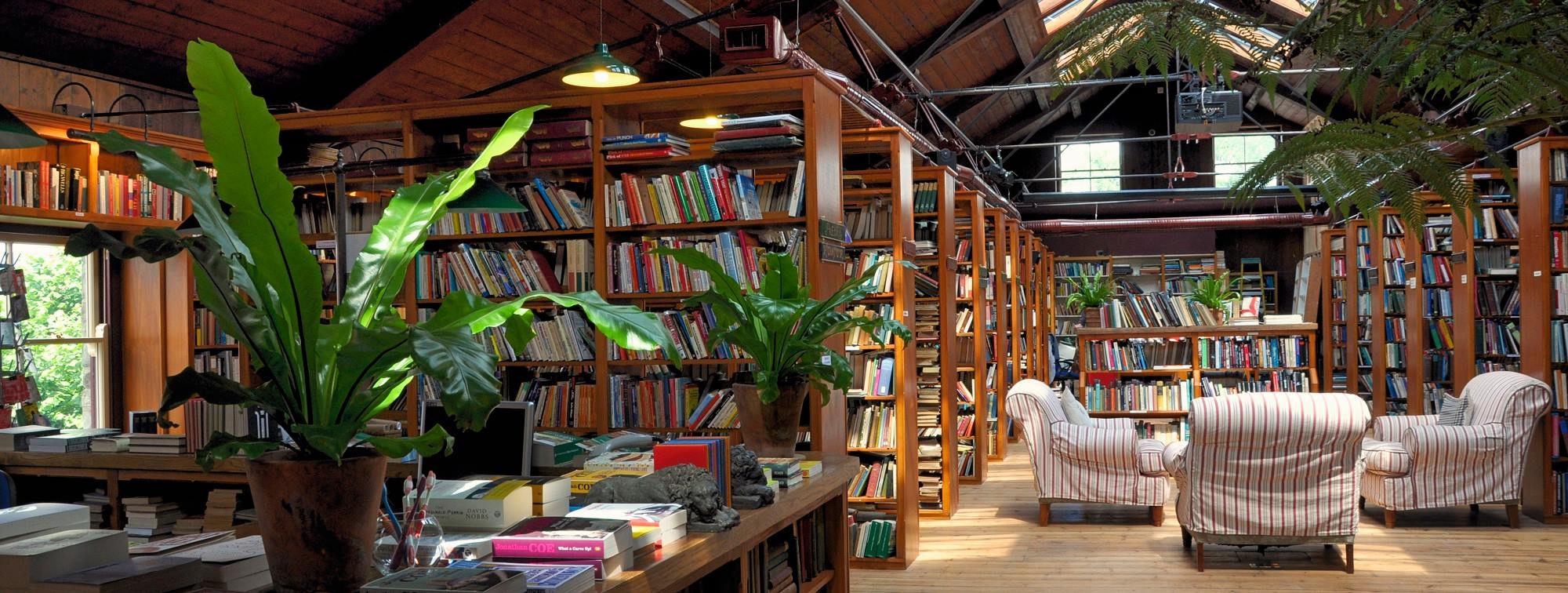



Comments